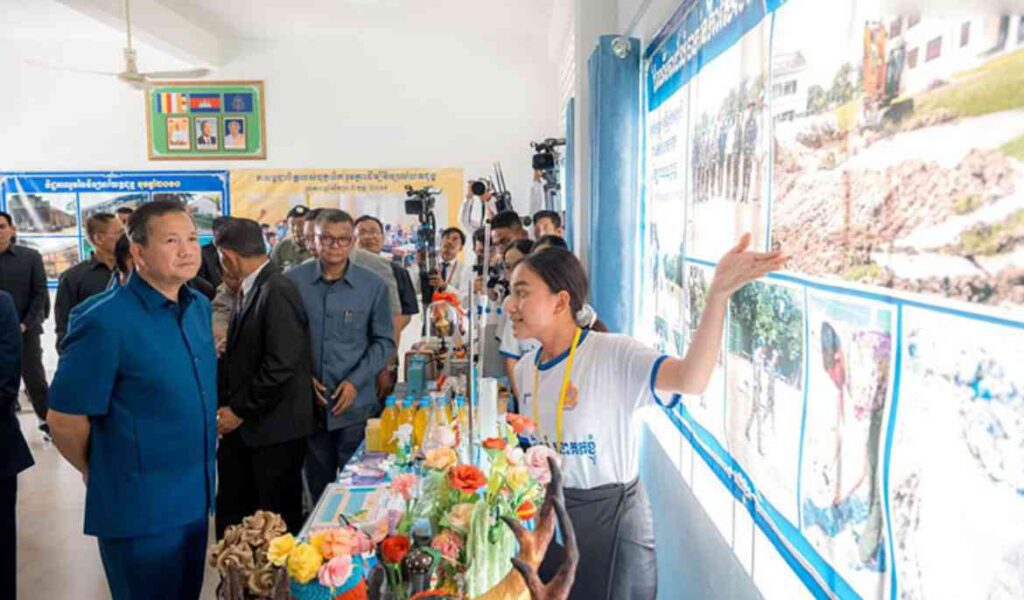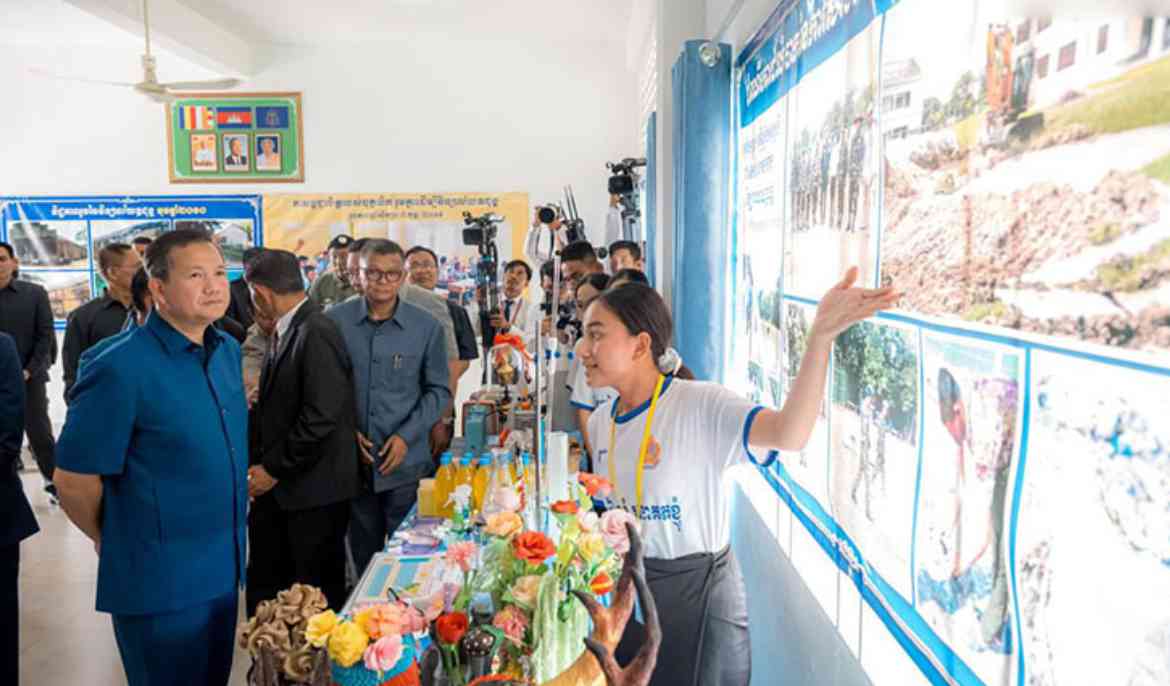Synopsis: Cambodia’s economic future must be built on a foundation of strong and diverse human capital, not just a few individuals, but a large, skilled workforce across all sectors.
Prime Minister Hun Manet Tuesday said that the Royal Government has always prioritised investment in human resources, recognising them as essential assets for managing and strengthening the national economy as well as for realising the country’s long-term vision for 2050.
Inaugurating new school facilities in Oudong Mechey city, Kampong Speu province, Mr Hun Manet stressed that expanding and strengthening human capital, particularly at the provincial level, is both necessary and urgent to meet future demands and align with evolving regional and international trends.
“Human capital is essential for generating added value, attracting investment, and promoting innovation and competitiveness for Cambodia,” he said, adding, that Cambodia’s economic future must be built on a foundation of strong and diverse human capital, not just a few individuals, but a large, skilled workforce across all sectors. “That is why we must focus on training and developing more human resources.”
He further underscored that human capital plays a vital role in turning Cambodia’s development visions for 2030 and 2050 into reality. As a result, the government has made it a top priority to invest in and strengthen human capital to ensure sustainable, inclusive growth and long-term national competitiveness.
Kampong Speu Provincial Governor Cheam Chan Sophorn said the province holds a strong potential in key priority sectors such as agriculture, industry, and services, which are important to drive local economic growth.
In 2024, the province attracted 93 industrial projects approved by the Council for the Development of Cambodia, ranking Kampong Speu province as the first in the nation for investment approvals.
Sophorn noted that the province currently has one operational Special Economic Zone (SEZ), with three additional zones in preparation. Kampong Speu also hosts seven industrial parks, 1,442 factories and enterprises, employing a total of 253,946 workers. These workers collectively earn an average monthly salary of nearly $90 million.
Speaking on the development of the agricultural sector, Governor Sophorn said, “The province has deployed 69 agricultural officers across various communes and plans to expand coverage to all communes by 2025 to better support farmers. The province’s rice cultivation covers 123,000 hectares, producing approximately 412,000 tonnes annually.”
Similarly, industrial crops and mango plantations span over 60,000 hectares, yielding over 500,000 tonnes, while sugarcane cultivation covers 35,226 hectares, with an output of more than 2 million tonnes.
In terms of livestock, the province is home to 474 farms raising cows, goats, and pigs. Additionally, it produces over 1 million chickens and 28 million eggs annually.
This output not only ensures food self-sufficiency within the province but also enables significant exports to other provincial-capitals, generating an estimated $200 million per year.
In the first half of 2025, the province welcomed nearly 700,000 tourists, enjoying the peaceful atmosphere and improving tourism infrastructure. This marks a significant increase from around 500,000 domestic and international tourists in 2024, Governor Sophorn said.
Kampong Speu is also home to 29 tourist resorts and communities, including 15 established resorts, 9 community-based tourism sites, and 4 newly developed destinations.
Sophorn emphasised that this growth, alongside progress in other key sectors, has driven the province’s overall development. Kampong Speu’s economy reached a value of approximately $1.9 billion, achieving an economic growth rate of 5.7 percent and a gross domestic product (GDP) per capita of around $2,000.
He further stated that Kampong Speu’s economic growth is primarily driven by three major priority sectors, including agriculture (31.3 percent), industry (47.1 percent), and services (21.7 percent). These sectors continue to play a vital role in advancing the province’s overall economic momentum.



